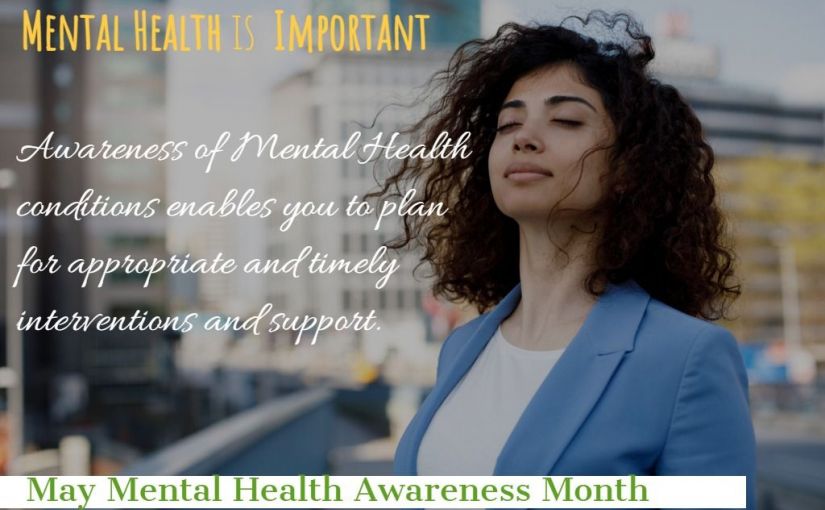Look after your Mental Health

Look after your Mental Health.
These are certainly strange and unprecedented times. Much of the population are asked to stay at home and minimise contact with other people to help reduce the spread of COVID 19. What used to be a home can start to feel more like a stress prison.
With the new work environment, the onus may be on us to maintain our own psychological wellbeing. Where the workplace could have had breakfast mornings, work outings, groups activities etc., with home working these have all disappeared leaving a vacuum in our mental wellbeing. Workplace interactions have been replaced by a growing sense of isolation which is a concern for the development of mental health issues. Identifying early warning signs, and managing your wellbeing is vital for prevention of any development of mental health issues. So how do we keep mentally well?
Exercise
A minimum of 20 minutes exercise daily is important as it releases endorphins. Endorphins are the feel-good hormone generated in the body once exercise is engaged and is why the 20-minute mark is important. Ideally exercise outside in the fresh air and if some headspace is required, exercise alone.
Sleep well
While sleep is something that happens naturally, we can’t consciously influence how we sleep. We can however put in steps to increase our chances of a good night’s sleep. These include getting up early, being active during the day, reducing screen time before sleep, eating well, and creating a down time before sleep such as mindfulness or guided meditation. Keeping a regular time to get up and go to bed is important so that the body is regulated, staying up too late and sleeping in too much is not conducive to healthy sleeping habits.
Connecting with others
To stop the spread of COVID 19 we need to stay apart but that doesn’t stop us from connecting with others. We can connect with other by letters, Skype or Zoom calls, and phone calls. Do this daily with loved ones and be careful not to fall into the trap of asking the same questions and having the same discussions daily this can seem very repetitive. Spice up the conversations by focusing on the good times spent with that person and even make a list of one or two items to discuss, this can get the laughter back and remind you of the joy spent with that person. It happened previously and it will happen again.
Hobby (learn something new)
There is no better time to learn something new or spend more time on your favourite hobby. Hobbies, and especially any hobby that helps you lose track of time, is very healthy for the mind. Loosing track of time is akin to a flow state of mind where creativity and focus are merged. Being in the flow state of mind takes away any negative feelings and helps you focus on the present moment and the task at hand.
Eat well
Eating good food helps the body function and when the body functions properly it influences our mental health. Food that makes us sluggish will slow the body down and make us feel tired and sometimes grumpy, therefore having a negative effect on our state of mind. Reducing caffeine, tea, sweet treats, and alcohol is healthy for the body and can help a person feel better.
Keep a diary
Keeping a daily diary of events, feelings, and emotions faced during the day is a very healthy habit. This increases your mental wellbeing because it helps bring unconscious feelings to the forefront, which helps you manage them. We all have flashing feelings during the day that pass through our mind and are then forgotten about soon after, if we are more aware of these feelings it gives us better skills to manage them and makes us more aware.
How/what we think
How we think will have a significant influence on how we act and how we feel. If we tend to think about negative events and past injustices, we may very well feel bad. However, if we develop the ability to recognise unhealthy thought patterns early, we have a chance to develop a trait that is conducive to positive mental health. Our thoughts are significant, when we have a stressful thought, it can trigger a release of adrenaline into our body, which will give us a surge of energy. The best way to think about the thoughts we have is that it’s like a tap of either calming hormones or stress like hormones trickling into the body. Managing thoughts is a practice, or habit that is best learnt with Mindfulness.
Mindfulness (meditation)
Mindfulness is the practice of focusing on one thing for a period, usually 10 minutes. The best thing to focus on at the start is your breath going in and out, it’s a very simple practice that can actually be challenging. By focusing on your breath, you are focusing on the present moment, not the past, not the future but the now. You will fail to maintain focus on your breath but don’t worry, everyone fails. It is not about succeeding, it’s about catching your thoughts drifting and bringing it back to the breath. There are numerous apps to help you start such as head space and calm.
Prevention is better than a cure and in terms of mental health, this rings especially true. Having the ability to recognise early warning signs and put in scientifically proven coping skills, as outline above, is a key factor in managing your mental health effectively.
Be safe and be well.
David Gahan

Psychotherapist, B.A Honours in Counselling skills and Psychotherapeutic studies
David has worked for many years as a psychotherapist, working with mental health both in the community and in the workplace. He is the author of Ireland's first health and safety publication for mental health in the workplace “Mental Health Assistance Guide” designed for businesses who aim to support mental health. His passion and training technique ensures that mental health training is applicable, practical, and engaging, binding training outcomes with discussion on current concerns. Giving real experience in this field has proven very successful and useful for businesses doing this training.
